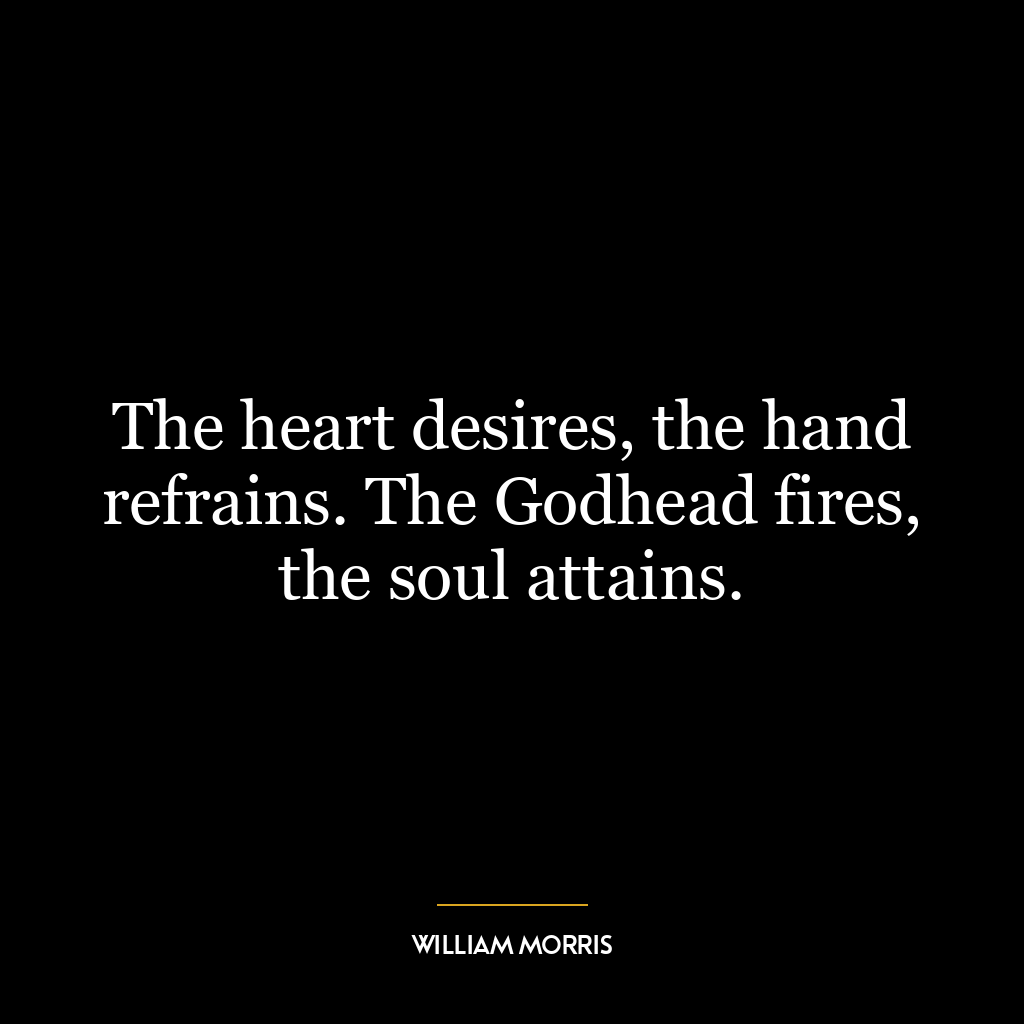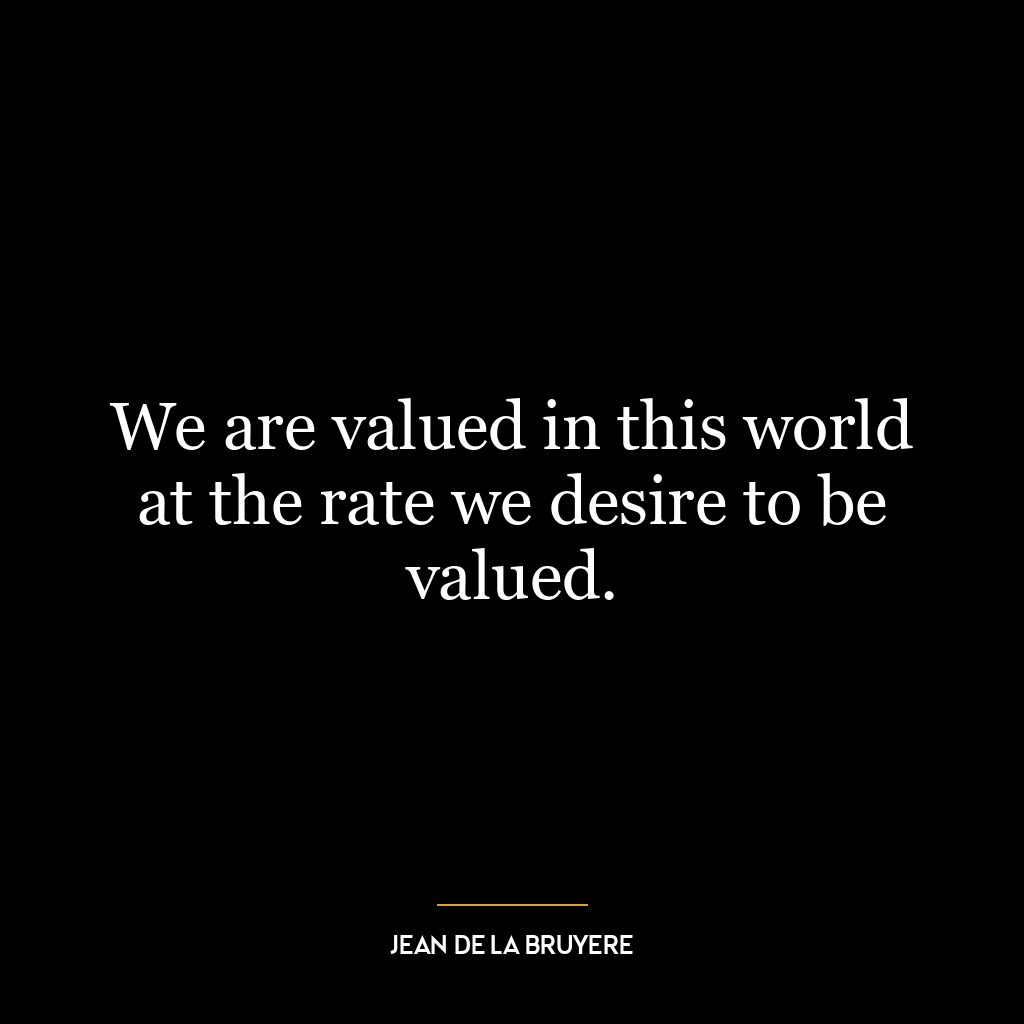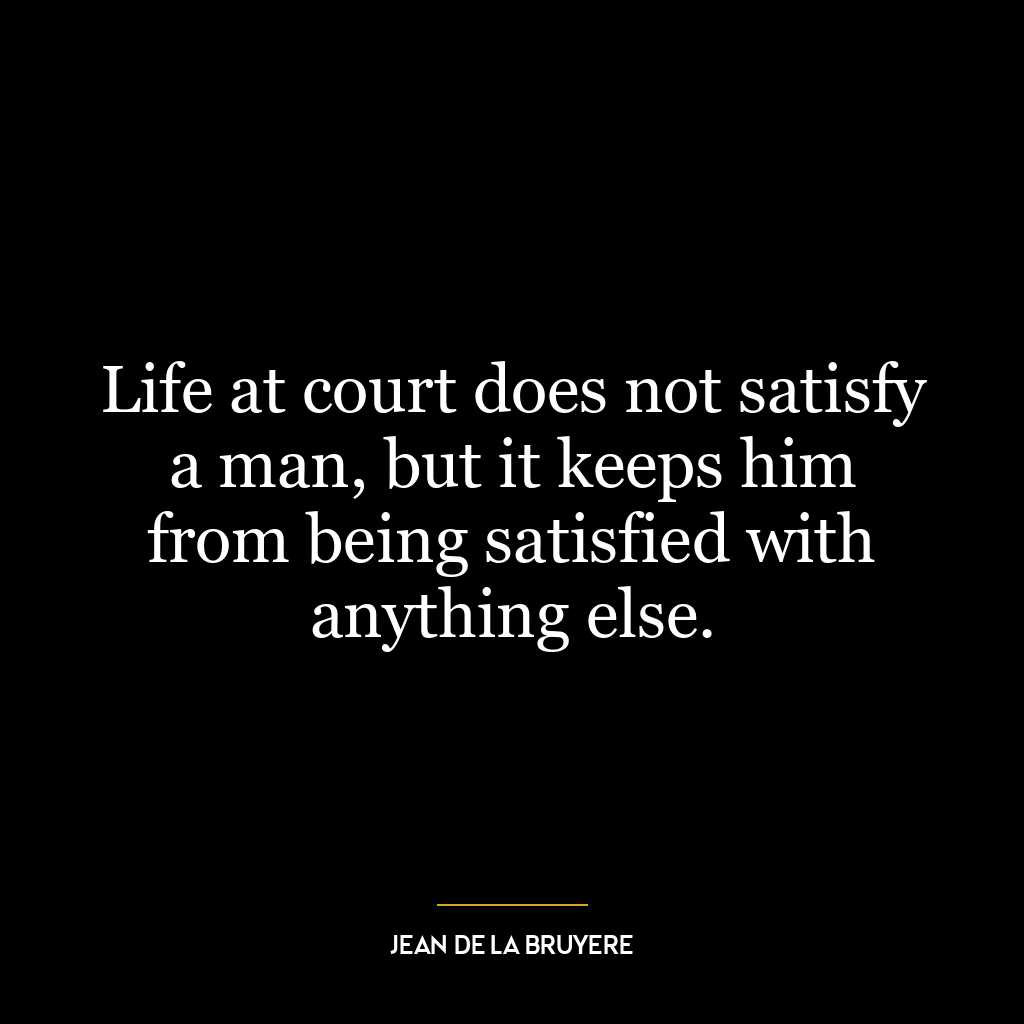It is that of an unsatisfied desire which is itself more desirable than any other satisfaction.
This quote is a profound exploration of the human condition and our relationship with desire. The essence of the quote lies in its paradoxical nature, suggesting that an unsatisfied desire can be more desirable than any other satisfaction.
The idea here is that the act or state of desiring something, with all its longing and yearning, can be more fulfilling and exhilarating than actually attaining what we want. This could be because the process involves anticipation, imagination, hope, and even struggle—all elements that make life exciting and meaningful. In contrast, when we finally satisfy our desires, there can often be a sense of anticlimax or emptiness.
Applying this concept to today’s world or personal development could involve recognizing the value in striving for goals rather than just achieving them. It might mean finding joy in the journey itself—the learning curve involved in mastering a new skill, for instance—rather than focusing solely on end results.
In personal relationships too this idea holds relevance. Many times people are enamored by their pursuit of love rather than love itself; they enjoy ‘the chase’ more because it involves excitement and uncertainty while attainment may lead to complacency.
On a broader societal level it could also imply that constant satisfaction may not always lead to happiness; sometimes dissatisfaction drives innovation and progress as it pushes us out of our comfort zones towards betterment.
However one must exercise caution not to romanticize unfulfilled desires excessively as this can potentially lead to perpetual discontentment. The key perhaps lies in balancing appreciation for both journey (desire) and destination (satisfaction).









